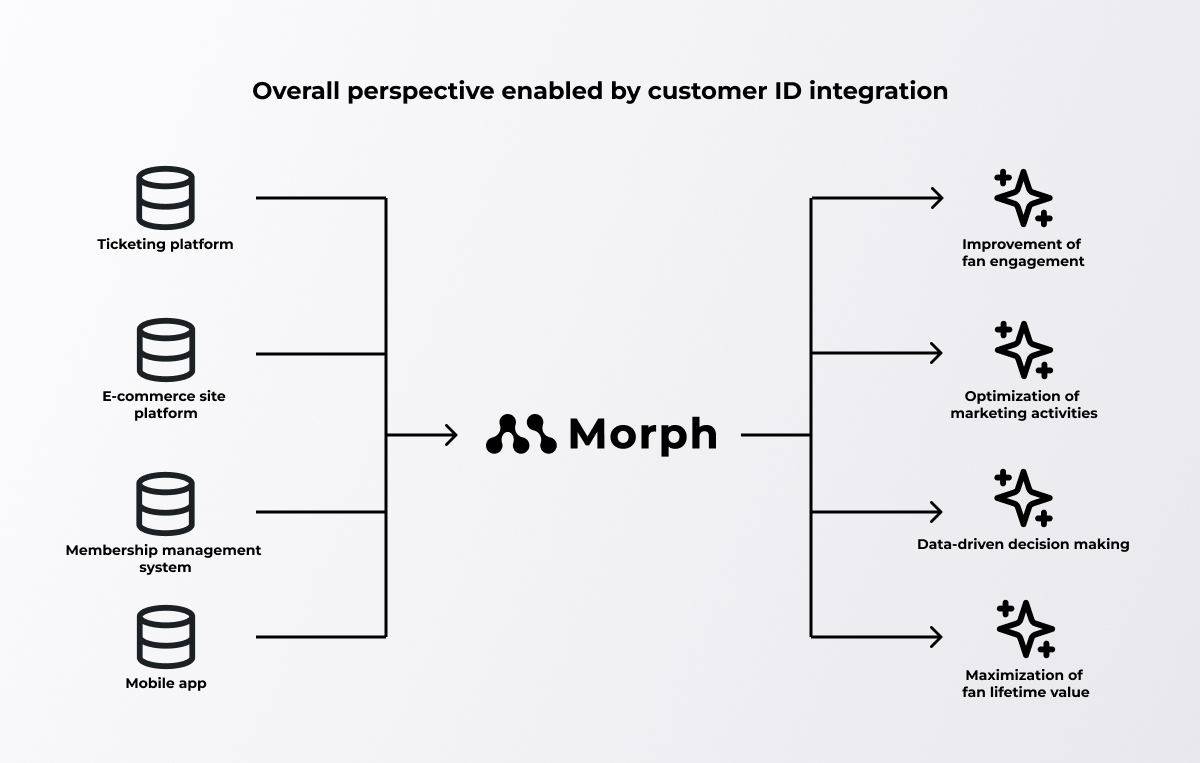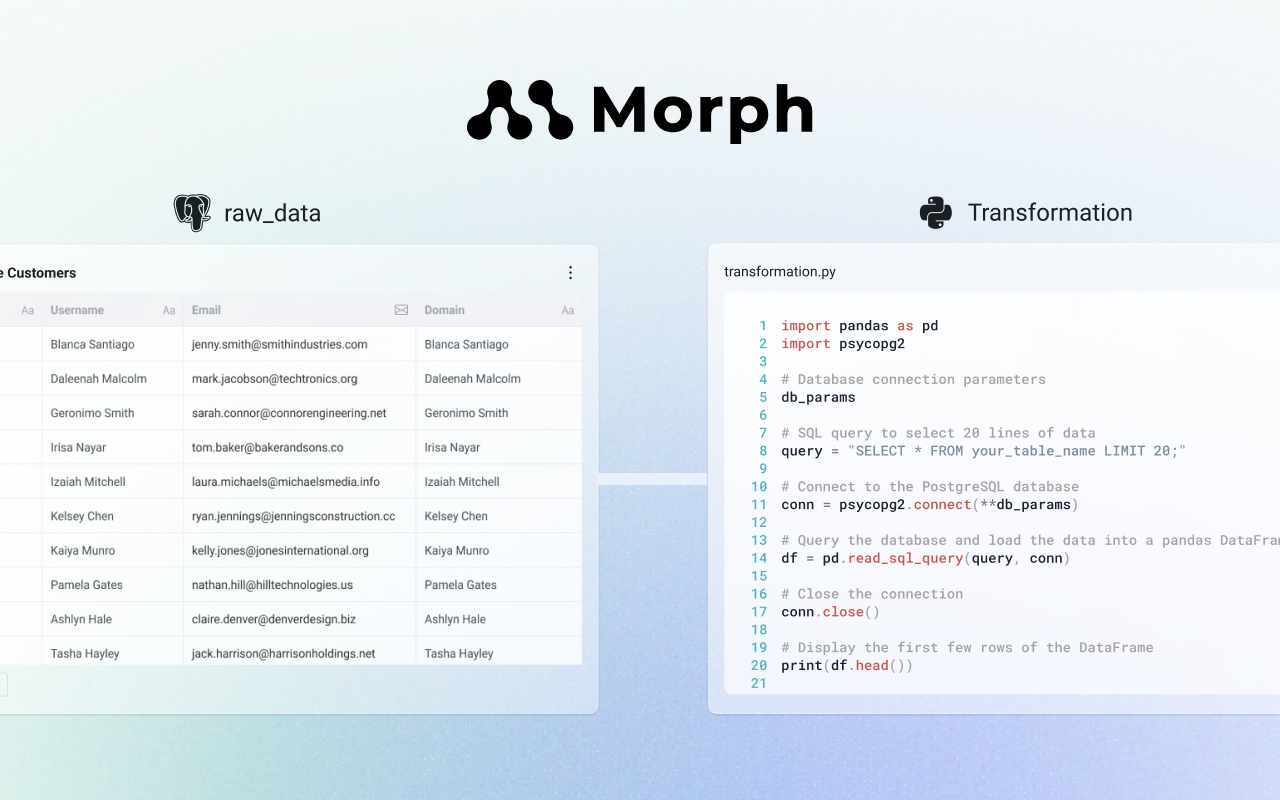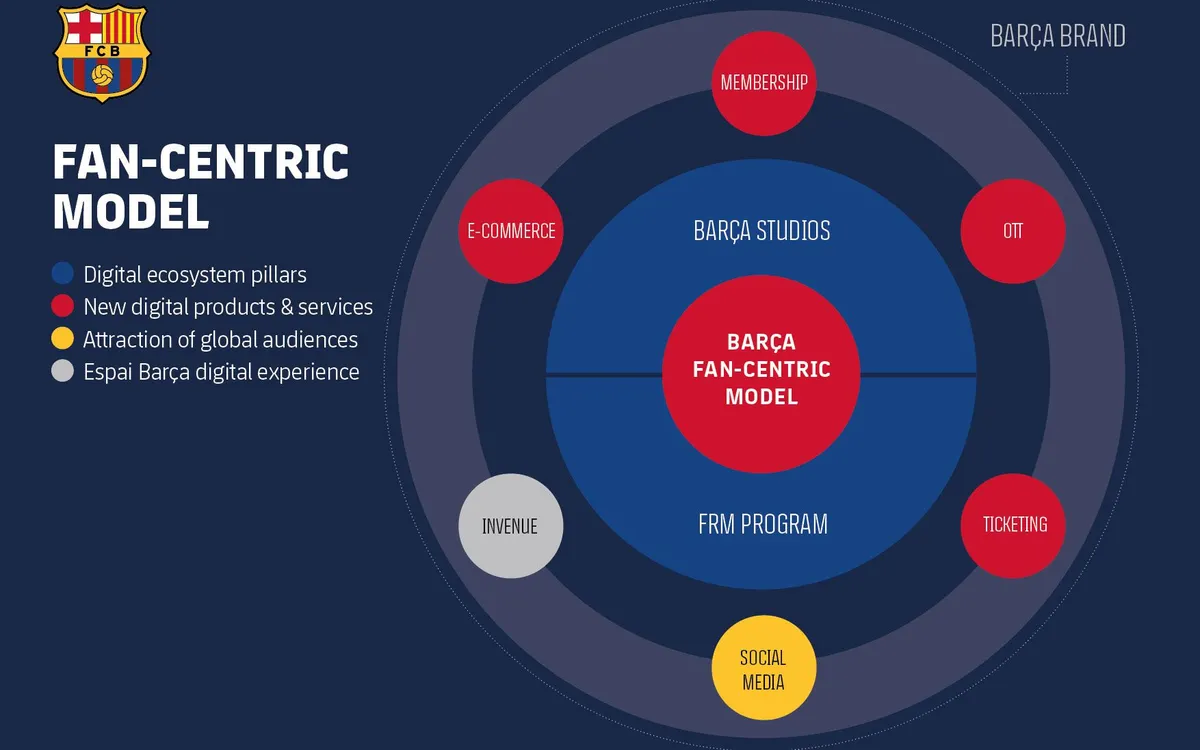
The Value of Customer ID integration in the Sports Industry: Utilizing Data in Sports part 6

The Challenges of Customer ID Integration in the Sports Industry
Fragmented Platforms
Sports clubs often use multiple platforms on the business side of things, such as dedicated ticketing systems, separate e-commerce platforms for merchandise sales, club membership management systems, and mobile apps. This fragmentation makes integrating customer IDs difficult. The lack of integration among these systems results in data dispersion and makes grasping a complete view of customers challenging.
In addition, third-party marketing tools are often used independently, leading to inconsistencies in data when these tools are not integrated properly. For instance, integrating and centralizing data from email marketing tools and social media management tools can be challenging. Thus, platform fragmentation poses a significant obstacle to customer ID integration.
Shortage of Data Personnel
For many sports clubs, securing specialized personnel such as data scientists and analysts is not easy. These professionals can not only perform essential customer data analysis but also uncover new insights through data analysis. Therefore, if a club can acquire such talent, they are extremely valuable. However, the high demand for these professionals means that sports clubs face significant competition from many other industries.
How Can Customer ID Integration Be Achieved?
Customer ID integration is the process of consolidating customer information from different data sources and managing it under a unified ID.
To successfully integrate customer IDs, it is essential to start with data cleansing and preprocessing. Cleansing involves correcting duplicates, typos, and missing values to ensure data consistency and accuracy. Preprocessing converts data from different sources into a format that can be integrated and linked using a common ID.
A significant challenge here is determining the match between data stored in different sources. Each data source issues their own IDs for customers, so other data points must be used to identify the same person.
This identification logic varies case by case, requiring flexible processing.
Processing with Python
Python is a highly effective tool for customer ID integration. With its extensive libraries, Python can perform data cleansing, preprocessing, and integration efficiently and flexibly. Using the Pandas library, for example, a user can manipulate data frames and easily merge, filter, and cleanse data collected from different sources. By leveraging Python’s flexibility and multifaceted libraries, you can streamline the customer ID integration process and enhance accuracy.
Utilizing Generative AI
Generative AI holds significant potential for customer ID integration. It can evaluate the similarity of names and addresses obtained from different data sources and identify entries belonging to the same customer. When evaluating data stored on different platforms, variations in formatting can occur, making it a challenging task for simple rule-based logic.
Morph: Combining Python and AI
Morph is an excellent tool for customer ID integration. Morph utilizes AI to automate data cleansing and enrichment, efficiently and quickly handling data preparation. Morph AI supports the construction of data pipelines and generates Python or SQL code for data processing and visualization. You might find Python or SQL challenging, but there are abundant learning resources available, and Morph AI will support you. Therefore, even non-engineers can perform data processing typically done with Python or SQL.
Morph can integrate with external databases, allowing you to handle data connected to data warehouses like Snowflake and BigQuery. If errors occur, Morph automatically fixes them, ensuring accurate data processing.
By leveraging these features, customer ID integration can be performed smoothly, achieving unified data management and advanced analysis.

What Can Be Achieved with Customer ID Integration
Improvement in Fan Engagement
Customer ID integration enables sports clubs to significantly enhance fan engagement. Personalized content based on fan preferences keeps fans engaged, while providing prioritized information about matches and players of interest to specific fans boosts fan satisfaction.
Analyzing fans' past behavior data predicts their interests, allowing clubs to send relevant event notifications. For instance, if a fan has attended specific events multiple times in the past, sending them notifications about similar events can encourage repeated participation, increasing event attendance rates.
Real-time interaction becomes feasible, allowing clubs to promptly respond to fan reactions during matches via social media, enhancing fan engagement. As a result, fans enjoy matches more and loyalty to the club increases.
Optimization of Marketing Activities
Customer ID integration enables significant optimization of sports club marketing activities. Targeted marketing becomes achievable by analyzing detailed customer data, including purchase histories and behavioral patterns. Effective marketing strategies can be tailored to specific segments. For instance, frequent ticket purchasers can be actively informed about new matches and events, boosting purchase intent.
Cross-selling and upselling opportunities increase. Promoting related merchandise or VIP packages to ticket buyers can generate additional revenue. Leveraging integrated customer data helps understand fan interests, enabling timely and relevant product/service offerings.
Data-Driven Business Decision Making
Customer ID integration allows sports clubs to make data-driven strategic decisions. Rapid access to insights derived from integrated data streamlines strategic decision-making. Analyzing ticket sales data and fan purchase histories informs effective pricing strategies and promotional efforts, maximizing club revenue and competitiveness.
Maximization of Fan Lifetime Value
Customer ID integration serves as a potent tool for maximizing fan lifetime value. Utilizing integrated data, clubs can adopt appropriate approaches tailored to fan lifecycle stages. Introducing new fans to club attractions through targeted content and offering special events or promotions to existing fans enhances fan loyalty.
Enhancing fan experience is crucial for maximizing fan lifetime value. Customer ID integration helps understand fan preferences and behaviors in detail, enabling clubs to provide experiences tailored to fan expectations. For instance, offering personalized food and beverage suggestions during matches or providing special services at stadiums can increase fan satisfaction. Consequently, fans feel more connected to the club, fostering long-term fan relationships.

Reaching Fans: FC Barcelona
FC Barcelona (Barça) is revamping its digital strategy to forge new relationships with fans. This strategy includes the evolution of new revenue sources for the club's digital business, which is expected to become one of the club's main revenue streams in the coming years. The strategy aims to reach fans directly without intermediaries and gain deeper insights into fan preferences and habits to deliver compelling services and products through the development and launch of its own platforms.
The core areas of the new digital strategy involve attracting audiences worldwide, entertainment and data, and building Barça's digital product ecosystem. Barça utilizes new platforms and programs like Barça e-sports to attract young audiences, reinforcing leadership in social networks through high-quality content tailored to fan interests and habits.
The strategy is underpinned by the production of entertainment content and the collection and analysis of data. Barça Studios creates entertainment content for Barça's digital products, while the Fan Relationship Management (FRM) platform collects data from its proprietary platform to gain a deeper understanding of fans and provide them with the most relevant content.
Barça's new digital strategy reflects a revolution in fan consumption patterns and efforts to respond to changing competitive environments by leveraging digital technologies to continue delivering the most relevant offerings to fans.
Why Morph Focuses on Utilizing Data in Sports
Morph is collaborating with the football club SHIBUYA CITY FC to promote the use of athlete data.
However, compared to plethora of devices that collect athlete data, software to effectively utilize that data is still developing, and there is room for improvement.
In this context, Morph can effectively fill the gap between data collection and utilization, providing a flexible tool for data utilization.

 Cited from
Cited from